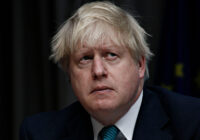Solomon Appiah looks at tax avoidance in the EU as a global problem.
All of us decide whether or not we will exit the world leaving it in a better or worse shape than we found it. There is no such thing as leaving it just as we found it. This is because of what Chaos Theory calls the butterfly effect. The world is engineered in such a way that each of its inhabitants, no matter how insignificant they may seem in their own estimation, actually do matter and ultimately leave an indelible mark on the planet when they exit. The butterfly effect is the idea that a butterfly, flapping its wings in some African rainforest, can generate a violent storm or hurricane on the other side of the earth in North America. No action of ours is truly in isolation to itself and without effect. All actions — and by extension decisions too — affect someone and/or something either positively or negatively; hence the unbelievable importance of public policy, both locally and internationally.
By issuing one communique, the fate of 7 billion people, a majority living in developing countries, have been impacted by the group of eight leaders at the recent G8 summit. A significant issue this year was transparency, tax and trade, and the need to bring international reform in these areas. But the G8 fell woefully short. A simple reason for this is regulatory capture.
Regulatory Capture
The term itself can be quite confusing when legal theorists start to define it. For the purposes of this article, let us settle with a simple definition from Wikipedia: “Regulatory capture occurs when a regulatory agency, created to act in the public interest, instead advances the commercial or special concerns of interest groups that dominate the industry or sector it is charged with regulating.”
Regulatory capture simply refers to when regulators cannot do their job well because they “are in bed” with those they are supposed to be regulating. For the purposes of this discussion, the regulatory agency is the group of eight leaders who annually meet behind closed doors to make decisions that affect the fate of the world. The interest groups include anyone that has a stake in a lack of transparency, who benefit from the current system of unfair trade practices and also profit from the broken international tax administration system of today.
What was at Stake?
Kevin Watkins, executive director of the Overseas Development Institute (ODI), explains in a recent article: “What is less widely recognized is the harm inflicted on the poorest countries. Trade mispricing – a practice that facilitates the shifting of profits to low-tax jurisdictions – costs developing countries in excess of US$550 billion annually: more than five times annual aid flows.” In addition, the latest report by Global Financial Integrity explains that: “Between 1980 and 2009, the economies of Africa lost between US$597 billion and US$1.4 trillion in net resource transfers away from the continent.”
What is at stake? Human lives — specifically those of the poorest in our world. This includes all those lives that could be saved if the leaks in the current system could be plugged with better tax, transparency, and accountability regulations. The sums of money lost in the absence of these are colossal. If there was an international crackdown on some of these imbalances in the international system, the US$550 billion that developing nations lose through only one type of tax avoidance — trade mispricing — would provide five times the aid they receive in a year. Imagine how much more money they would receive if all other forms of avoidance and evasion were addressed. Now convert that money into lives saved through better development policies.
When some of these transnational corporations (TNCs) or their owners are questioned about the harm they cause through tax avoidance, their response is: it is a legal form of tax avoidance. It might be legal because the G8 and other world leaders permit it, but does that make it right? One of the first lessons anyone learns in Ethics 101 is legality never trumps ethics or morality. Slavery, Apartheid, and the Holocaust were all sanctioned by law but they were downright unethical and immoral — and so too is the current practice of supporting tax havens and shielding TNCs through opaque systems.
Why Regulatory Capture?
David Cameron, the British prime minister, admits that the current system is broken. Yet, he and his G8 colleagues refuse to help fix it when given the opportunity. This can only mean two things. First, the G8 prefers a world with growing inequality and poverty deepened by the lack of transparency; or the G8 have been captured by the TNCs' safe havens and other interest groups.
As the old saying goes, he who pays the piper calls the tune. Maybe it was naive to hope for more from Cameron and his colleagues; but then again that would not be realistic because his own country has safe havens. How can he or his colleagues point a finger at other nations when they themselves have log beams in their eyes?
The views expressed in this article are the author's own and do not necessarily reflect Fair Observer’s editorial policy.
Image: Copyright © Shutterstock. All Rights Reserved
Support Fair Observer
We rely on your support for our independence, diversity and quality.
For more than 10 years, Fair Observer has been free, fair and independent. No billionaire owns us, no advertisers control us. We are a reader-supported nonprofit. Unlike many other publications, we keep our content free for readers regardless of where they live or whether they can afford to pay. We have no paywalls and no ads.
In the post-truth era of fake news, echo chambers and filter bubbles, we publish a plurality of perspectives from around the world. Anyone can publish with us, but everyone goes through a rigorous editorial process. So, you get fact-checked, well-reasoned content instead of noise.
We publish 2,500+ voices from 90+ countries. We also conduct education and training programs
on subjects ranging from digital media and journalism to writing and critical thinking. This
doesn’t come cheap. Servers, editors, trainers and web developers cost
money.
Please consider supporting us on a regular basis as a recurring donor or a
sustaining member.
Will you support FO’s journalism?
We rely on your support for our independence, diversity and quality.







Comment